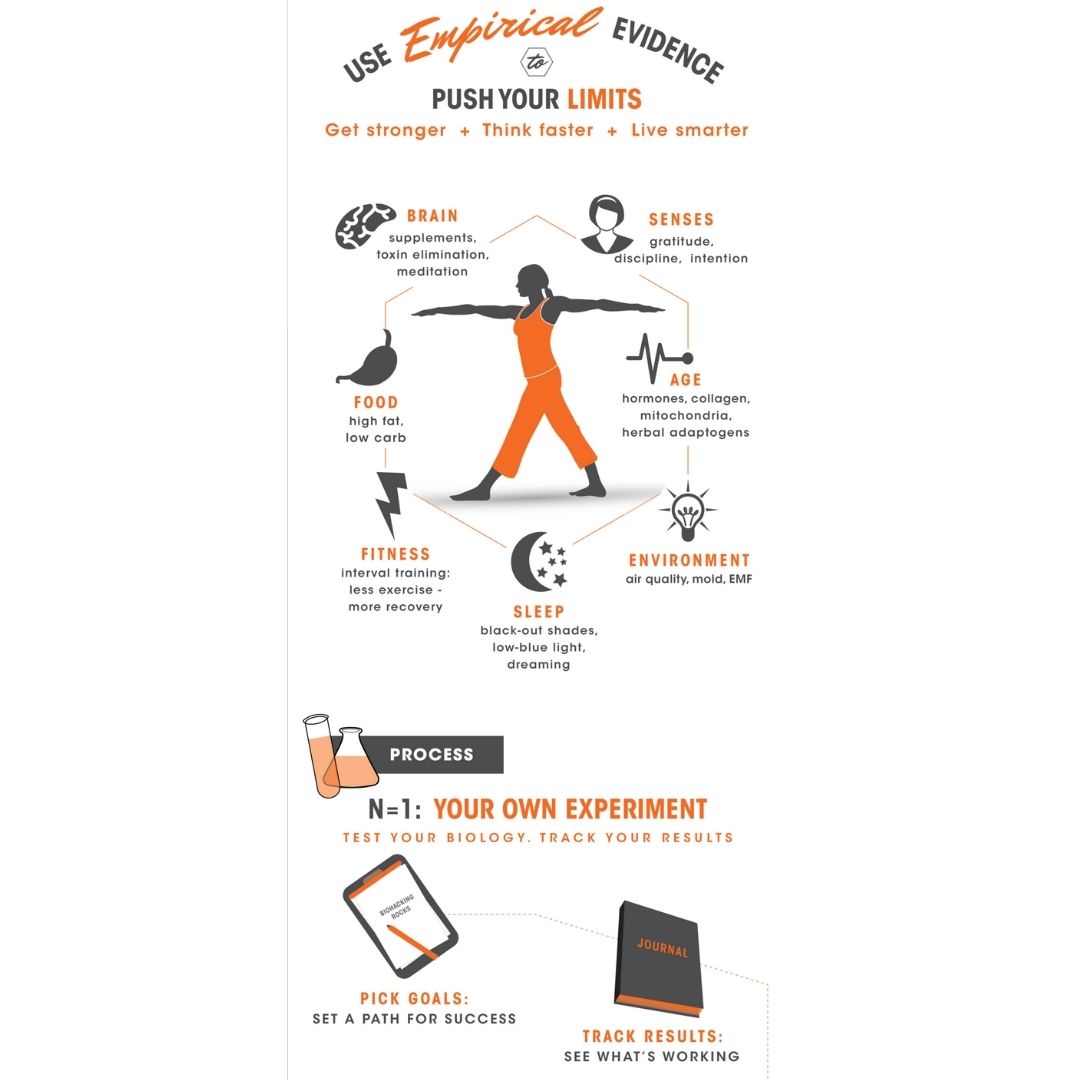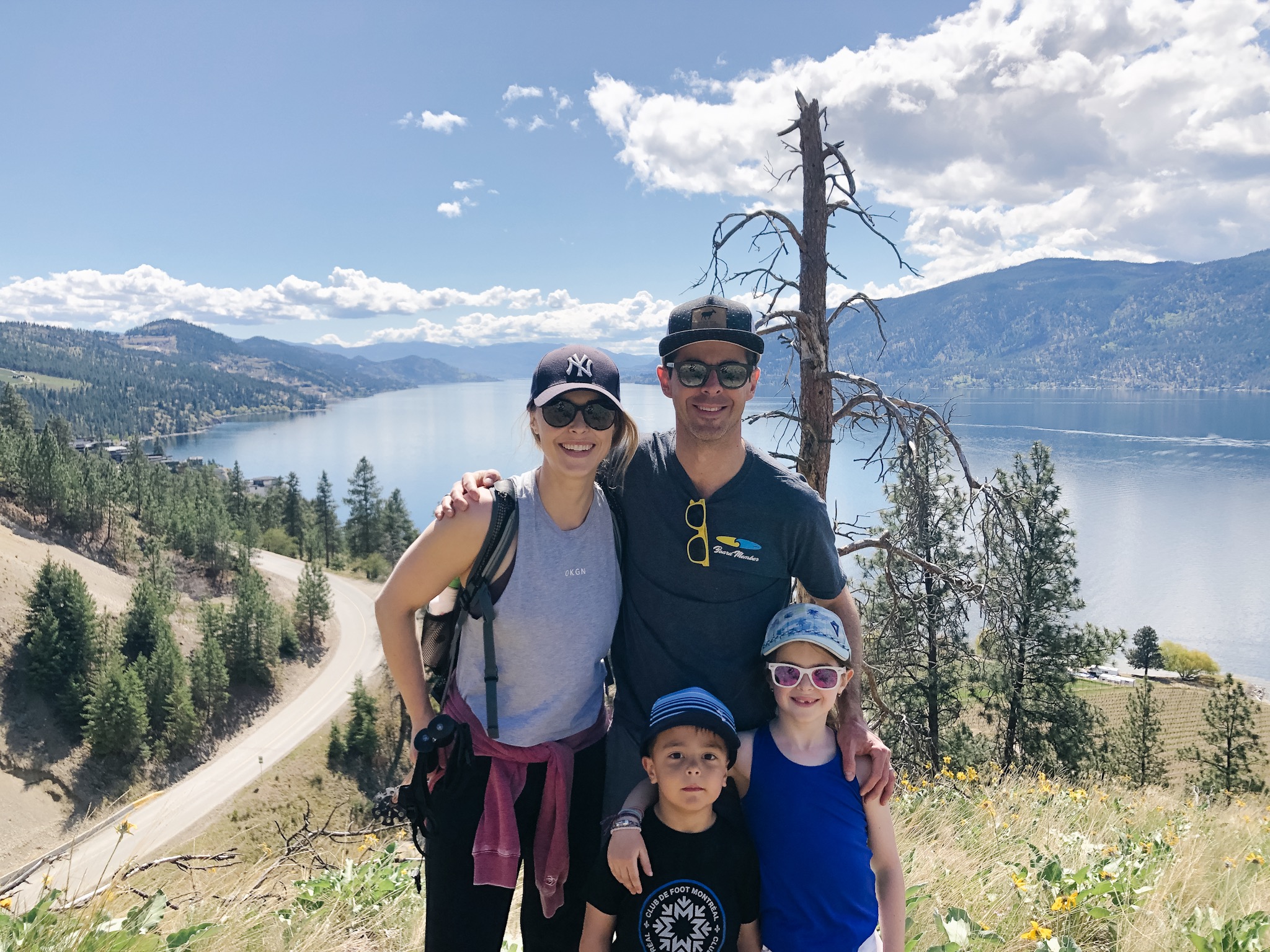My 3 Takeaways from the 2021 Biohacking Conference

For the second year, I had the pleasure of attending the 2021 Virtual Biohacking Conference to learn from thought leaders on the newest proven strategies to optimize health.
But what is Biohacking - you may ask? Dave Asprey is considered the father of Biohacking and he defines it as follow:
Biohacking: (verb, noun)
(v): To change the environment outside of you and inside of you so you have full control of your biology, to allow you to upgrade your body, mind, and your life.
(n) The art and science of becoming superhuman.

Source: Dave Asprey
Essentially it's the idea that you can change and improve your health to feel your absolute best. Sign me up!
The lineup of experts speaking at the conference was impressive this year again. Covered topics went from brain health to peptides, fasting, parenting, trauma healing, quantum physics, stress management, nutrition, meditation...and many more.
Without getting too deep in the science, here are 3 takeaways worth sharing as I believe they are approachable and actionable:
1. Boost your Mitochondria
Mitochondria are organelles inside your cells that make energy. If they're on top of their game, chances are you'll be too!
Unfortunately, the opposite is also true. It's therefore important to pay attention to them as they can dictate your vitality.
 Image: Dave Asprey
Image: Dave Asprey
In his opening sessions, Dave Asprey shared his favorite ways to boost mitochondrial function for optimized energy and vitality. Here are some of the most approachable ones:
- Drink EZ water by blending your Bulletproof coffee. I describe it here.
- Consume polyphenols daily (good news: clean coffee is a strong source)
- Have Ketones daily: Brain Octane Oil is the cleanest and less taxing form on the liver.
- Practicing Intermittent Fasting (more on this below)
- Expose yourself to natural sun light daily
- Block junk light using blue-blocking glasses after sunset. I share my favorite ones here.
Whether you pick one or multiple every day, stacking the above hacks will have cumulative effects on improving your mitochondrial function which will make you more performant.
2. Timing Your Fasting Window
There is no doubt that fasting is a strong (and free) biohacking technique. It does have to be done right in order to enjoy the benefits from this technique.
To review the topic, a fasting panel comprised of key opinion leaders joined Dave Asprey. Around the table were Dr. Jason Fung, Dr. Will Cole, Dr. Alan Goldhamer and Dr. Amy Shah.
I particularly appreciated Dr. Shah's nuanced approach where she discussed the concept of Circadian Rhythm Based Fasting - which simply put means to restrict your eating windows in a way that honors and follows your circadian rhythm.
Like Dr. Shah say:
"The best type of intermittent fasting is Circadian Rhythm Based Fasting, which means eating for a 8-10 hour window during the day. During circadian rhythm fasting, you should monitor your sleep wake cycle and get plenty of morning sunlight."
Dr. Amy Shah is a double board-certified MD with training from Cornell, Columbia
, and Harvard.
For women in particular, she recommends alternating fasting windows: 1 day fasting for 12h and the next for 16h and cycling as such. That seems to be gentler on hormones and create less stress in the body. I have been switching to this technique in the past couple months and I'm noticing a difference (vs fasting the same way every day).
She recommends to perform fasted workouts in the morning and break your fast after. I tend to have my shorter fasting windows on my workout days and that works very well. Be sure to replenish in protein and fat post workout (avoid carbs).
 I perform all my intermittent fasting using a single hack: Bulletproof coffee. Read more on why and how I make it here.
I perform all my intermittent fasting using a single hack: Bulletproof coffee. Read more on why and how I make it here.
3. Vegetable Oils Are the New Sugar
We've known for a while now that vegetable oils are highly processed and bad for you. The latest science shows that it could in fact be the new silent killer.
The unsaturated fat in vegetable oils is extracted from vegetable seeds using extreme heat and often chemical processing. The result? Highly oxidized omega-6 fatty acids, including linoleic acid, that are harmful to us.
What are they bad now?
You may remember that since the introduction of the "low-fat diets" in the 90s, Polyunsaturated Fatty Acids (or PUFAs) were believed to be better for us. In fact, they were introduced as a safer alternative to saturated fats, claiming that it was better for heart disease prevention.
Being cheaper to produce and apparently safer, the production of these vegetables oils went up to the point that it's now in everything. As a result, the average population is consuming way too much of these oxidized oils.
When consumed in excess of the good Omega 3 fats (found in avocado, wild salmon, olives, etc), PUFAs has been shown to increase inflammation, oxidative stress, risk of cardiovascular disease and overall accelerated aging.
Ideally we'd want a ratio of Omega 6:3 of 1:1 but since the 90s that ratio has skyrocketed to 25:1. Yikes.
It's simple, to feel better, we must reduce our consumption of inflammatory vegetable oils and go back to a more ancestral way of sourcing of fat naturally. In general, you can follow these guidelines:
Avoid these oils:
- Canola oil
- Soybean oil
- Peanut oil
- Corn oil
- Sunflower oil
- Safflower oil
- Margarine
The bad news? These oils have made their way everywhere. Any processed food contains one or more of the above... :(
When possible, reach for these oils instead:
- Coconut oil and/or MCT oil
- Avocado oil*
- Extra virgin olive oil (cold-pressed)
- Grass-fed butter or Ghee*
*high smoke point: best for cooking as they are stable.
 I use this organic cold-pressed Extra Virgin Olive Oil that I find at Costco (win!).
I use this organic cold-pressed Extra Virgin Olive Oil that I find at Costco (win!).
In closing
Do what you can for the season you're in. Trying to feel better is sometimes overwhelming. I find it best to start with trying a couple things consistently for 1-2 weeks and see if you can feel a difference. If yes, great - can you stack a couple more hacks? If no, don't bother and move on to trying something else.
Remember that nature exposure and morning sun exposure are free and can create incremental health benefits. When in doubt, go outside!!
From my family to yours,
Vanessa xo
PS. Like this type of content? Let's be friend - sign up to my newsletter and receive free hacks like this 2x/month. Put your name below :)


